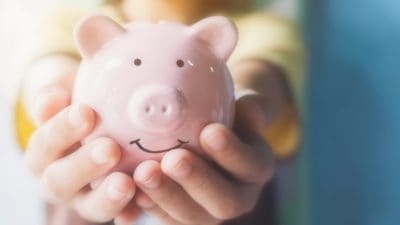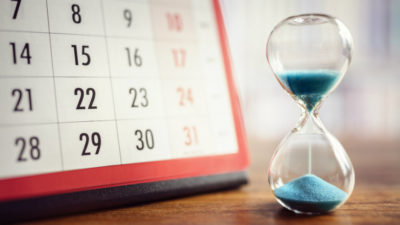If you’re living paycheque to paycheque, you’re not alone. According to the latest Financial Wellbeing Index by Lifeworks, around one in every three Canadians spend their entire paycheque before their pay period ends. As if that wasn’t alarming enough, around 7% claim they spend more than their paycheque. Yes, they’re going deeper into debt.
But, wait, there’s more.
Nearly half of employed Canadians have either no emergency fund (28%) or an emergency that will cover only two months of essential expenses (25%). Given that a three-month emergency fund is the standard-bearer of healthy finances, we could say over half of Canadians are on the brink of a financial catastrophe.
With the cost of living on the rise — not to mention the relentless spike in inflation — Canadians will no doubt find it harder and harder to build one. If you find yourself in that situation, here’s what I would do.
1. Try to squeeze out $100 per week
The first step I’d take is to look closely at your budget and find a way to save $100 a week. With $100 per week, you could save $5,200 within a year. Sure, you’ll probably need more than $5,200 to have a proper emergency fund. But it will at least help you get started.
Start with your essentials. While you can’t always cut essential expenses, such as heating and rent, you can find ways to reduce them. For instance, you can use smart living tips, such as opening your curtains during the day and replacing your furnace filter, to decrease your need for natural gas. You can also switch your ceiling fans to clockwise to keep your home heated for longer periods of time.
The same thing goes for retail gas. Since prices are climbing — with no sign of falling before the year’s end — you can practice cost-efficient driving. Replace your air filter, go under 100 km/h, and make sure your tire pressure is at the ideal kPA. Don’t drive in storms, and use gas apps to find the best gas prices near you.
If you can’t cut essentials, you’ll have to cut discretionary spending, such as subscriptions, hobbies, and eating out. Again, we’re talking about saving only $100 per week. If that means cutting out your weekly restaurant visits, you may want to practice some delayed gratification and eat at home.
2. Pay off high-interest debt, like credit cards
Credit cards have some of the highest APRs around. If you’re stuck carrying a balance on a credit card, you can easily waste money on the interest that could otherwise go toward your savings.
So here’s what I would do. I would figure out, how long it’s going to take me to pay off this credit card (or batch of credit cards). I would look at how much money I can reasonably put toward credit card debt per month and decide how many months before I can become debt-free.
Once you know how long it’s going to take, you can look at some balance transfer credit cards. These cards offer low promotional APR periods during which you’ll pay less in credit card interest. The promotional periods don’t last forever, so your goal is to find one that’s long enough for you to finish paying off your balance.
If the promotional periods are too short, you can do consecutive balance transfers until you pay off your debt. Of course, balance transfers can come with fees, so you don’t want to perform more than is necessary. But if it means saving money on interest, the fees will be worth the cost.
3. Increase your income
Finally, the last thing you can do is look for ways to increase your overall income. In fact, for many Canadians, especially those who can’t cut their expenses, this may be the fastest way to build an emergency fund.
The good news: many employers are eager to hire new employees. And the work isn’t always bussing tables, either. Some employers will offer remote work or jobs with flexible hours. With a second source of income, you’ll be surprised how much money you can amass in a short period of time, especially if your first source can cover your monthly expenses.








